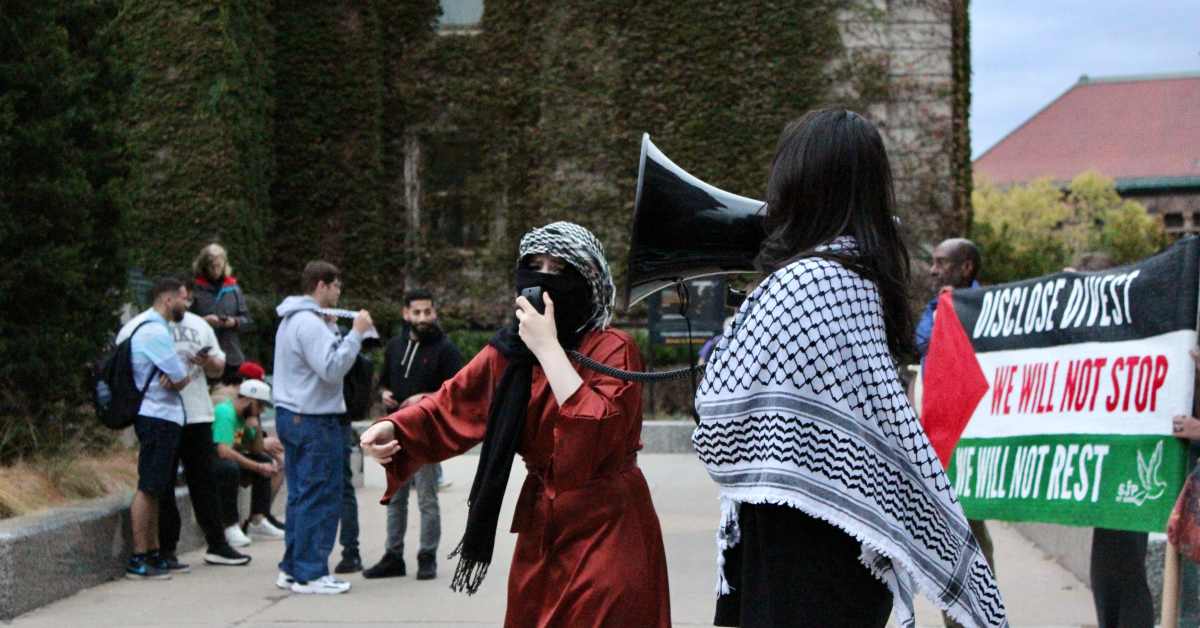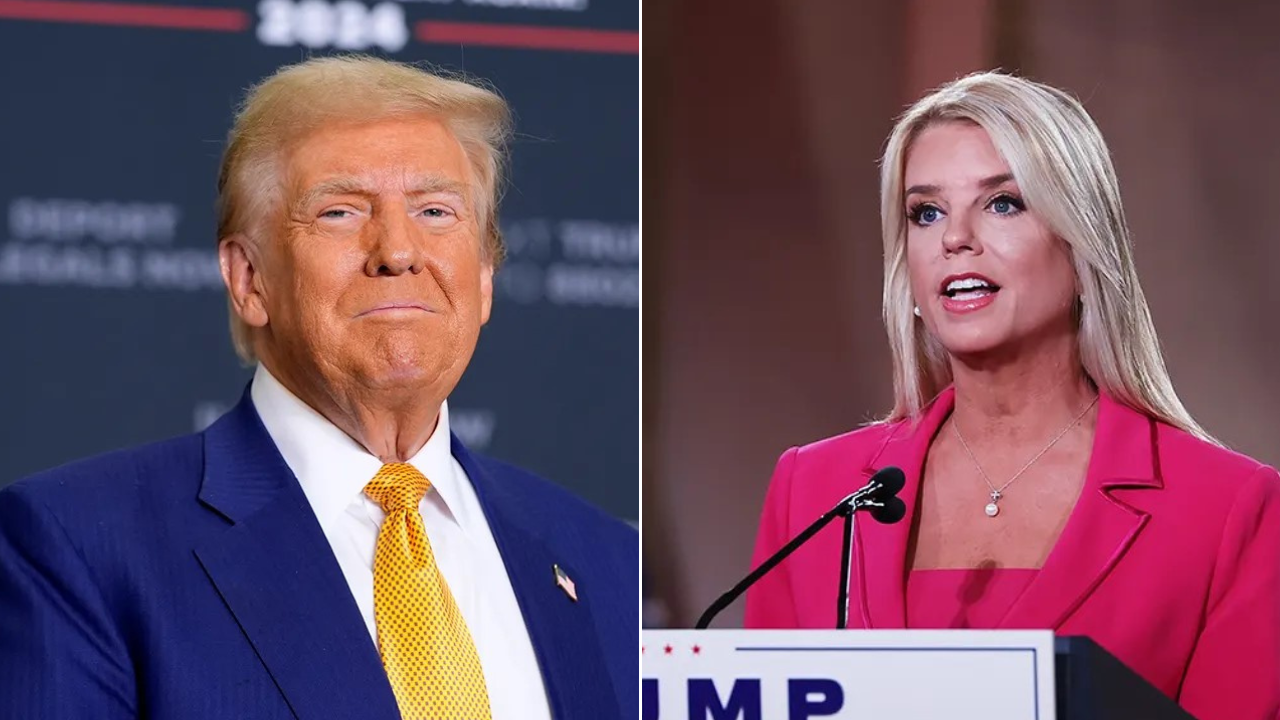Minnesota
New Minnesota deer hunting group to hold meetings on wolves
A new hunting group has formed in Minnesota and has taken on wolves and wolf management as its first major issue.
Hunters For Hunters has scheduled public evening meetings for Dec. 6 in Carlton, Dec. 7 in Aurora, Dec. 8 in Coleraine, Dec. 29 in Detroit Lakes and Jan. 15 in Bagley to discuss predator management.
The group calls itself “a watchdog organization dedicated to protecting the rights of hunters, landowners and sportsmen in the State of Minnesota. We are a community of like-minded individuals who believe that hunting and outdoor activities are an important part of our heritage and culture. Our mission is to ensure that future generations can enjoy the same hunting opportunities that we have today.”
The group’s website says its goal is “taking back your rights, and forging a better direction that benefits our hunting traditions.”
The group says it is starting with the deer and wolf issue in Minnesota but hopes to expand to other states and other issues.
“We’re a grassroots group of passionate hunters and landowners who see our tradition of deer hunting being destroyed because of wolves,” Lake Bronson resident Steve Porter, a member of the group, told the Duluth News Tribune.
Porter, whose son, Dillon, is chairman of the group’s board, said Hunters For Hunters held a meeting in mid-November in Squaw Lake that drew 250 people and three state senators.
“There are a lot of angry people out there who feel this issue is not getting the attention it deserves,” Steve Porter said. “We’re trying to get the attention of the Legislature, state and federal. … The wolf has to be controlled in some capacity.”
Biologists say northern Minnesota’s deer population, especially in the northeast, has been hit hard by a string of deep-snow winters over the past decade, which forced deer to struggle and reduced their ability to reproduce and escape predators.
Some hunters in the region believe that wolves are the primary reason deer numbers are down, and they want to kill wolves to increase deer numbers. That’s not legally possible now as wolves are a federally protected species under the Endangered Species Act, placed there under court order after a judge ruled individual states were bungling the effort to manage the big canines.
While no public hunting is allowed, about 200 wolves are trapped and killed by a federal agency each year in Minnesota near where pets and livestock are attacked.
The Minnesota Department of Natural Resources estimates about 2,691 wolves roam here, mostly in the northern half of the state, by far the most of any state outside Alaska. The agency says that’s about the same or even fewer wolves than in the early 2000s when northern Minnesota had record large deer herds and record deer harvests.
Some hunters, however, say the DNR wolf population estimate is flawed, blaming predators and not deep-snow winters for the deer decline.
Minnesota’s deer harvest during the firearms season was down 6% statewide this year from 2022. Hunters bagged more deer in the southeast and central regions of the state but shot 18% fewer deer in the northeast compared to 2022 and 57% fewer than 2017, a recent high mark.
Under the support of the DNR and then-Gov. Mark Dayton, a Democrat, Minnesota held wolf hunting and trapping seasons for three years, from 2012-2014, killing more than 900 wolves before a federal judge ordered the animal protected again.
In January 2021, states again briefly regained control of wolf management, and Wisconsin held a mid-winter wolf hunt allowing tracking hounds and night-vision goggles. That hunt lasted only three days before state officials shut it down. Licensed hunters killed 216 wolves in that time, more than 80% over the intended quota of 119, and nearly 20% of the state’s estimated 1,000-plus wolves.
After the Wisconsin hunt, a federal judge again gave wolves in the Great Lakes region federal protections, and that court case remains unresolved. Efforts to act in Congress on the issue have not advanced.
Fewer than 500,000 of Minnesota’s 5.7 million residents hunt, about 9% of the population. The number of hunters in the state has declined over the past 20 years as the baby boomer generation ages out and fewer younger people take up hunting.
Hunters For Hunters is seeking annual memberships of between $35 and $60. For more information on the group or the meetings, email info@hunters4hunters.org or go to hunters4hunters.org.

Minnesota
NCAA Division II and III football playoffs: Minnesota State Mankato stuns Augustana in final minutes
Matthew Jaeger kicked a 34-yard field goal as time expired as Minnesota State Mankato scored 10 points in the final three minutes to rally for a 20-19 victory over Augustana on Saturday in Sioux Falls, S.D., in the first round of the NCAA Division II playoffs.
The Mavericks had lost to NSIC rival Augustana three times in the past two seasons. It looked glum again Saturday as the Vikings took a 19-10 lead with 3 minutes, 11 seconds remaining on Jake Pecina’s fourth field goal of the game.
Minnesota State started its next possession at its 12-yard line but drove 88 yards in seven plays, capped by Grant Guyett’s 33-yard TD catch from Hayden Ekern and Jaeger’s PAT to pull within 19-17 with 1:35 to play.
The Mavericks’ Lorenzo Jones then recovered an onside kick near midfield. On third-and-4 from the Vikings 39-yard line, Ekern ran 16 yards for a first down at the Vikings 23 with 21 seconds to go. The Mavericks reached the 17-yard line before Jaeger’s final kick.
Ekern passed for 175 yards and two TDs for the Mavericks, who lost to Augustana 34-16 on Oct. 26 in Mankato.
Richard Agyekum and Joey Goettl each had interceptions which led to 10 points for the Mavericks.
The Mavericks (9-3) will play at Colorado State Pueblo, which had a first-round bye, next week.
Bemidji State 24, Angelo State 14: Connor Carver’s 59-yard TD run with just over two minutes remaining and Isaiah John’s interception with 51 seconds remaining helped the Beavers earn a first-round victory in San Angelo, Texas.
Minnesota
Preview: Wild vs. Oilers | Minnesota Wild

Last Season on Wild vs. Flames
Minnesota went 2-1-0 against Calgary.
Minnesota won the series-opening contest, 5-2, at Scotiabank Saddledome (12/5), earned a 3-2 shootout victory at Xcel Energy Center in the second matchup (12/14) and fell to the Flames, 3-1, in the series finale in St. Paul (1/2).
LW Matt Boldy led the Wild with four points (3-1=4). C Marco Rossi (1-2=3) had three points and LW Marcus Johansson (0-2=2) had two points. G Filip Gustavsson went 2-0-0 with a 1.92 GAA and a .940 SV% in two starts. G Marc-Andre Fleury was 0-1-0, stopping 30-of-32 shots in the third meeting.
D MacKenzie Weeger led Calgary with four points (0-4=4). LW Yegor Sharangovich had three points (1-2=3). G Dan Vladar went 0-1-1 with a 3.47 GAA and a .896 SV% in two starts. G Jacob Markstrom won his lone start, stopping 28-of-29 shots faced. G Dustin Wolf entered in the second period of the first contest and stopped 11-of-13 shots faced for Calgary.
Minnesota
Penn State Vs. Minnesota: Keys to the Game

Penn State is entering its penultimate game of the 2024 regular season, a final away matchup at Minnesota to face P.J. Fleck’s Golden Gophers. Minnesota (6-4) stands in the way of a potential 11-1 finish for the Nittany Lions. And while Fleck’s squad is unranked and a 12-point underdog, according to DraftKings, it has enough talent to cause fits for Penn State.
The Nittany Lions (9-1) have excelled this season when favored to win, avoiding letdowns against unranked opponents. A 33-30 overtime victory over USC is the closest call that James Franklin’s group has had. To maintain that success, Penn State will need some strong execution against a rested and well-prepared Minnesota squad.
Penn State vs. Minnesota predictions
Protecting the ball
Minnesota’s defense feasts on turnovers. While they’ve mostly come through 16 interceptions, the Golden Gophers also have forced seven fumbles, recovering four. Ball security, of course, is key in every game but will become especially important for Penn State when facing an opportunistic defense that tends to end up with the ball one way or another.
“They do have some ball hawks in their secondary, but they make plays when the plays come to them,” Penn State quarterback Drew Allar said. “I can’t just give them opportunities, because they’ll capitalize on it. And you know, a decent amount of their picks have actually been forced by their D-line, whether it’s like, a tipped pass that just falls into a linebacker or the quarterback getting hit and the ball … just finds a way to their hands.”
One mistake from Allar or Beau Pribula through the air could easily become a wasted possession for Penn State. With the Nittany Lions ranked fourth in the latest College Football Playoff rankings, they can’t afford to give Minnesota’s offense extra scoring chances and find fuel for a potential home upset. The turnover battle could wind up telling the story of Saturday’s game, especially if it happens to swing in Minnesota’s favor.
“We’ve always preached about ball security, no matter what, who we’re going against, and it’s definitely a talking point for us every week, so we’re going to take great pride in that,” Allar said. “Obviously, with a team like this, the way they’re built, they’re similar to us in the fact that they want to control the ball and they want to force turnovers. So we’re just going to have to be disciplined and stick to our game plan.”
An efficient offensive ground game
Going back to its success in favorable matchups, Penn State is 66-3 against unranked teams since 2016, when factoring out the 2020 season. For as much criticism as Franklin and the Nittany Lions faced for losing to Ohio State a few weeks ago, and for losses against other top-5 opponents in past seasons, they almost always take care of business when they’re “supposed” to win. And one key in avoiding potential upsets is keeping the opposing team’s offense off the field.
Against unranked, but certainly capable opponents in West Virginia, USC, Wisconsin and Washington, running backs Nicholas Singleton and Kaytron Allen racked up a combined 494 rushing yards on 99 attempts, nearly 5 yards per carry. As Penn State faces a similar opponent this week, controlling the clock and letting two of the top backs in the Big Ten go to work can help the Nittany Lions diminish any momentum Minnesota finds.
With Fleck’s secondary also being one of the conference’s best, Penn State would be wise to avoid risking any big-shot throws and attack the defense where it’s most vulnerable. The Golden Gophers allow 119.8 rushing yards per game — and in each of its conference losses to Iowa, Michigan and Rutgers, Minnesota allowed at least 109 rushing yards.
“I would say where we need to get better at is just being able to strain a little bit more in the run game, and get more finishes and more movement against teams to create more running lanes for Nick [Singleton] and Kaytron [Allen],” offensive lineman Anthony Donkoh said Wednesday. “I feel like going into [practice] and going into this game, we’re going to have a really good plan to be able to combat [Minnesota’s takeaways].”
Andy Kotelnicki brings his Minnesota roots to Penn State’s offense
Make Darius Taylor’s day a rough one
Minnesota starting back Darius Taylor has three games this season with at least 120 rushing yards. Minnesota won each game, including a 25-17 victory over ranked Illinois. In the Golden Gophers’ three conference losses, Taylor managed just 32.7 rushing yards per game and ran for 3.0 yards per carry.
Taylor adds some complexity as a strong receiving back (312 receiving yards), but when he’s running well out of the backfield, Minnesota’s offense has clicked much more. Quarterback Max Brosmer, completing 67.1 percent of his passes this season, is also at his best when he has a strong ground game to lean on, focusing on his efficiency and avoiding turnovers rather than having to do the heavy lifting offensively.
In 2022, Penn State successfully slowed Minnesota quarterback Athan Kaliakmanis in a blowout win. But when the Golden Gophers pulled off a 31-26 upset in 2019, the Nittany Lions’ defense let quarterback Tanner Morgan do whatever he wanted, racking up 339 yards and three touchdowns on 18-for-20 passing. That type of production from Brosmer would be disastrous this time around. But should the Nittany Lions handle Taylor and Minnesota’s run game well, containing the Golden Gophers’ senior quarterback should become simpler.
“[Brosmer] I think is playing really well. … In the last three or four games he’s done a really good job of protecting the football. Their running back, No. 1, Darius Taylor, is a big back and has been playing really well for the last two years,” Franklin said. “… We’re going to have to go and play well to find a way to get a win on the road here in the Big Ten.”
The Nittany Lions will take on Minnesota at 3:30 p.m. ET Saturday on CBS.
More Penn State Football
Is Penn State’s defense getting overlooked this season?
For James Franklin, another pivotal moment at Minnesota
James Franklin weighs in on the Big Ten, SEC and the College Football Playoff
Daniel Mader, a May 2024 graduate of Penn State, is an Editorial Intern with The Sporting News. As a student journalist with The Daily Collegian, he served as a sports editor and covered Nittany Lions women’s basketball, men’s volleyball and more. He has also covered Penn State football for NBC Sports and the Pittsburgh Post-Gazette, with additional work in the Centre Daily Times, Lancaster Online and more. Follow him on X @DanielMader_ or Instagram @dmadersports.
-

 Business7 days ago
Business7 days agoColumn: Molly White's message for journalists going freelance — be ready for the pitfalls
-

 Science4 days ago
Science4 days agoTrump nominates Dr. Oz to head Medicare and Medicaid and help take on 'illness industrial complex'
-

 Politics6 days ago
Politics6 days agoTrump taps FCC member Brendan Carr to lead agency: 'Warrior for Free Speech'
-
/cdn.vox-cdn.com/uploads/chorus_asset/file/25739950/247386_Elon_Musk_Open_AI_CVirginia.jpg)
/cdn.vox-cdn.com/uploads/chorus_asset/file/25739950/247386_Elon_Musk_Open_AI_CVirginia.jpg) Technology5 days ago
Technology5 days agoInside Elon Musk’s messy breakup with OpenAI
-

 Lifestyle6 days ago
Lifestyle6 days agoSome in the U.S. farm industry are alarmed by Trump's embrace of RFK Jr. and tariffs
-

 World6 days ago
World6 days agoProtesters in Slovakia rally against Robert Fico’s populist government
-

 News6 days ago
News6 days agoThey disagree about a lot, but these singers figure out how to stay in harmony
-

 News6 days ago
News6 days agoGaetz-gate: Navigating the President-elect's most baffling Cabinet pick




















